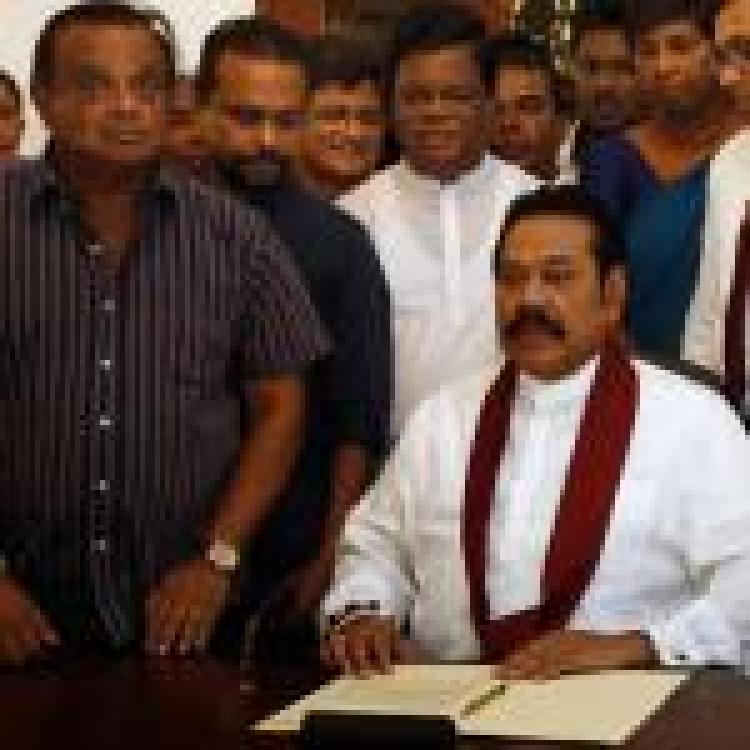Mahinda Rajapaksa was today appointed as Sri Lanka's opposition leader following his resignation as prime minister this weekend.
Rajapaksa replaces the Tamil National Alliance (TNA) leader, R Sampanthan, who held the position since 2015. The TNA has questioned Rajapaksa's eligibility to continue in politics.
Rajapaksa, who was nominated to the post by the United People's Freedom Alliance (UPFA), had called for the appointment, arguing he led the largest number of opposition MPs.
In a statement released in Sinhalese following his resignation, Rajapaksa said the United National Party (UNP) had been held hostage by the TNA.
"If they do not adhere to the diktat of the TNA, the UNP minority can lose their parliamentary majority at any moment," he added.
He went on to warn that though "some have expressed the view that it will be possible to minimise the damage done by the UNP because the President is no longer with them, we must realise that there is much that the UNP-TNA coalition can do without informing the President".
"We should bear in mind that back in 2002, the then UNP government singed a ceasefire agreement with the LTTE without informing President Chandrika Kumaratunga.
Rajapaksa's stoking of ethnic tensions was met with concern by Tamils, who felt his resignation did not mark at end to his presence in the political arena.
His party members and supporters had criticised the TNA's position as the official opposition, arguing that since the party's backing of the UNP in the past two months, they were with the government.
“We witnessed the TNA voting in favour of the confidence motion in support of Ranil Wickremesinghe. They cannot continue to be like this. If they are to play the role of the opposition they should work against the government,” the SLPP MP, Kanchana Wijesekera had told reporters.
MP S B Dissanayake had called for the opposition post to be handed to Rajapaksa.
"The Tamil National Alliance had no right to hold the opposition post in parliament because they were acting according to the whims and fancies of the UNP," Dissanayake told the Daily Mirror.

